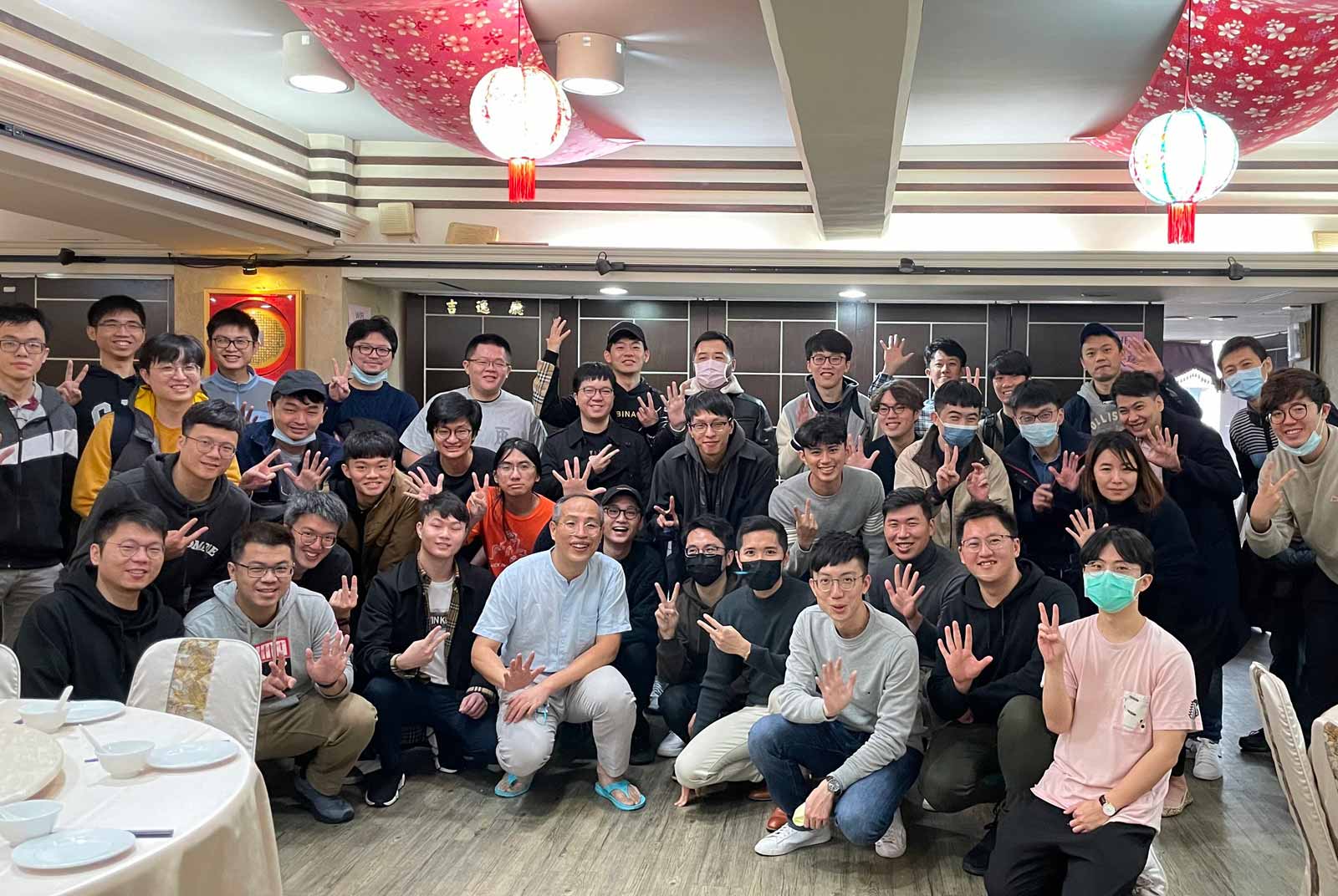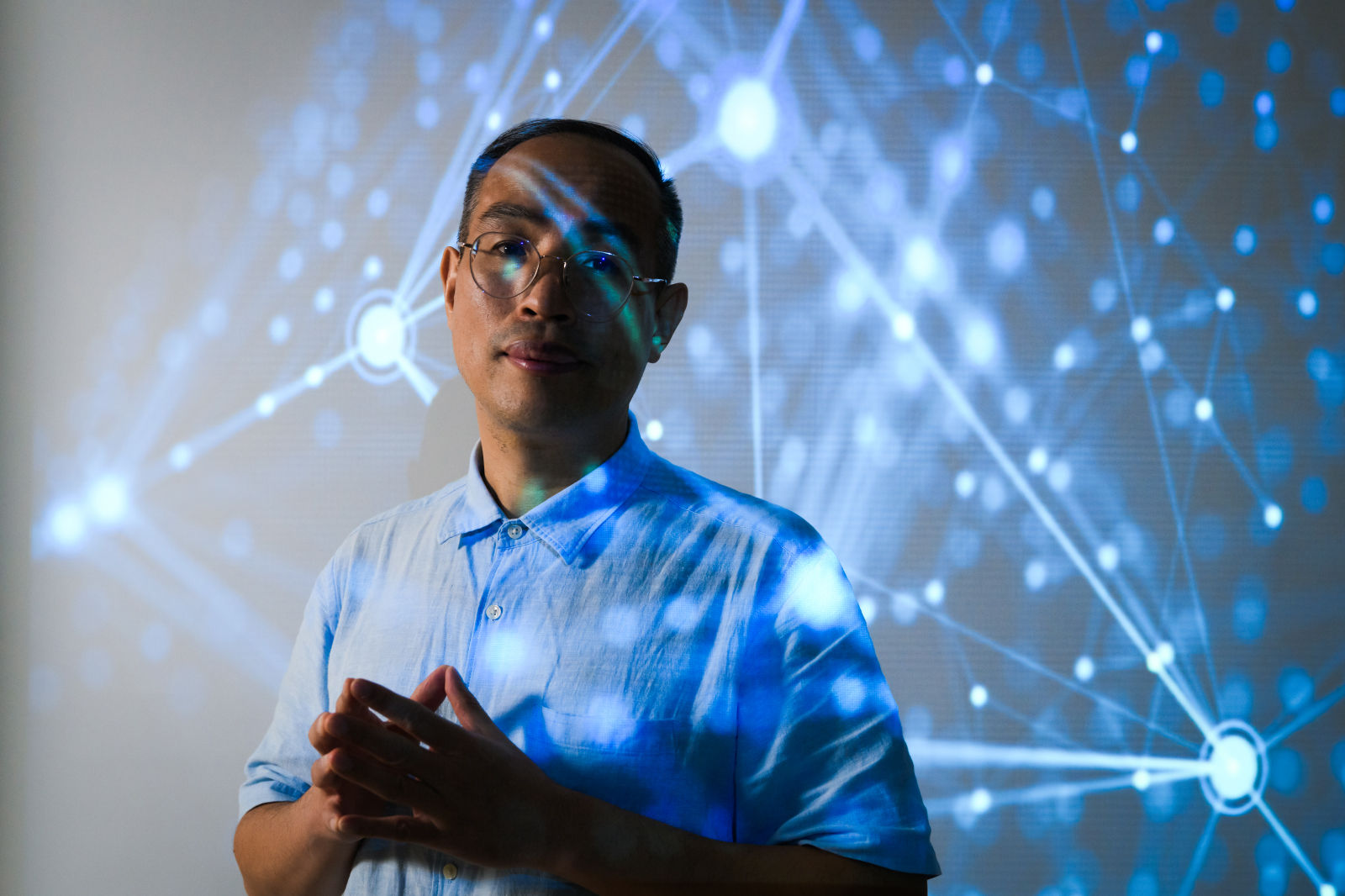Taiwan’s new Web3 upstarts

Source:Liao Shih-wei
The Web3 craze is sweeping the world, bringing new opportunities to Taiwan and spawning its own class of very wealthy young upstarts. CommonWealth looks at why Taiwan is well-positioned on Web3 and what obstacles remain.
Views
Taiwan’s new Web3 upstarts
By Joyce Lin, Lin Li-ShanFrom CommonWealth Magazine (vol. 743 )
A new industrial revolution is unfolding at National Taiwan University, centered around Web3, the next-gen internet phenomenon founded on blockchain technology.
One of its epicenters is the NTU Consensus Labs, run by information engineering associate professor Liao Shih-wei (廖世偉). More than a dozen 20-somethings who have emerged from the Labs have built fortunes of more than NT$100 million through the cryptocurrency business.
 (Source: Pei-Yin Hsieh)
(Source: Pei-Yin Hsieh)
Liao, who offered the first class in Taiwan on blockchain technology in 2015, has a Ph.D. in electrical engineering from Stanford University and worked for Google as a key member of its Google Android development team. He received the company’s highest honor, a Google Founders’ Award, and the software he helped create is now found in the billions of Android smartphones circulating around the globe.
Today, Liao is a Web3 devotee, convinced that decentralized finance (DeFi) is the only way to root out the dominance of vested interests in the global financial system.
A number of his students have emerged as startup entrepreneurs or core members of new enterprises, including Wilson Huang (黃偉軒), founder and CEO of digital asset management platform Steaker, Huang Pang-ting (黃邦庭), engineering director of DeFi strategy site Furucombo, and former Ethereum Asia Pacific researcher Kevin Mai-hsuan Chia (賈脈瑄).
 Wilson Huang, founder and CEO of digital asset management platform Steaker. (Source: Chien-Tong Wang)
Wilson Huang, founder and CEO of digital asset management platform Steaker. (Source: Chien-Tong Wang)
Getting rich while fomenting revolution
The Web3 generation led by Liao represents a clash of idealism and speculation, as it makes a fortune while clamoring for change and for uprooting the establishment.
And they are doing it at an unprecedented pace.
Liao said it generally takes startups in Taiwan seven to nine years to go public. But with blockchain rupturing existing financial structures, new Web3 startups can list their coins or tokens on cryptocurrency exchanges within seven to nine months. Once their wealth turns into cash, they quickly roll it into the next opportunity, creating a pace of evolution several times faster than in the past.
The latest example is SuDo Research, a startup set up in October 2021 by a group of Liao’s students who have yet to graduate.
Company founder and CEO Su Jiunn-jia (蘇俊嘉) spent only a semester studying at National Taiwan Normal University’s Department of Computer Science and Information Engineering (and took classes with Liao at NTU through an exchange program between the two schools) before taking time off to start a business.
Under Su’s leadership, SuDo uses its programming expertise to engage in low-risk, market-neutral arbitrage plays on major cryptocurrency platforms around the world, generating huge profits.
According to records compiled by crypto leverage trading platform BitMex, SuDo has amassed a net profit of more than NT$1 billion on the platform in just a few months, and BitMex is just one of many platforms used by the company.
Even before SuDo was founded, its core team had worked together for a few years, and four of them have built net worths of more than NT$10 million over that period. The company has now hit the big time, with an office in the landmark Taipei 101 building.
So what was it that got Su into the game? He noticed that top crypto trading teams around the world were zeroing in on arbitrage trading, and decided to follow suit.
Another prominent entrant into the blockchain space is cybersecurity expert Wayne Huang (黃耀文), the co-founder of security solutions company Armorize Technologies, which was acquired by American company Proofpoint in 2013. Just over three years ago, Huang started another business called XRex Inc., which offers blockchain solutions for financial transactions. Its Pre-Series A funding round – one of the earliest rounds of fundraising for any startup – raised US$17 million last year.
“Web3 has arrived, and Taiwanese will be the first to benefit,” he said.
 Wayne Huang, the co-founder of security solutions company Armorize Technologies. (Source: Chien-Tong Wang)
Wayne Huang, the co-founder of security solutions company Armorize Technologies. (Source: Chien-Tong Wang)
Taipei’s Xinyi District, which includes Taipei 101 and was once positioned as a financial hub, is quickly emerging as the nerve center for Web3 in Asia.
The world of Web3
What exactly is Web3, and how is it related to blockchain, NFTs and the metaverse?
According to Andreessen Horowitz (a16z), America’s biggest crypto investment venture capital firm, Web3 is the third generation of the internet, consisting of a group of technologies that encompasses blockchain, digital assets, DeFi, NFTs, DAOs (decentralized autonomous organizations), and encryption protocols.
In this decentralized virtual world in which transactions are made without middlemen, Web3 is generating native internet currencies and redefining ownership of internet data, spawning many trends that were impossible in the previous internet generation. NFTs, DeFi, and DAOs are all byproducts of Web3.
Taiwan Mobile President Jamie Lin (林之晨) described Web3 this way: “Web3 can be seen as a new paradigm shift. In the future, it will dominate all walks of life, as Web2 did in its later stages.”
Yet NTU’s Liao issued a warning for Taiwan. “It’s pretty sad for Taiwan’s business community that, while the world is talking about the metaverse, only Taiwan is thinking about hardware,” he said. “The only way the metaverse will become a reality is if a good Web3 foundation is built.”
Liao predicted that “a Web3 king will be born in the next year. The next Google will appear very soon, and everybody has to be ready to grab the opportunity.”
Who should get involved? The big difference between Web3 and the previous internet generation is that tech interests will not monopolize the profits derived from the development of Web3’s base layer. Many people without tech backgrounds, from investors to artists, are carving out a share of early Web3 action.
New media artist Aluan Wang (王新仁) is a prime example.
 (Source: Chien-Tong Wang)
(Source: Chien-Tong Wang)
Despite being a two-time winner of the top prize at the Taipei Digital Art Festival, Wang had sold only one of his works over the past 10 years, and the buyer was an NGO supported by the government. In June of 2021, however, he became the first Taiwanese artist to get on to the global NFT art platform Art Blocks, and more than 1,000 of his works were snapped up immediately.
“This has completely changed the world,” Wang said. He is currently working with a group of partners to create a decentralized NFT exchange platform called akaSwap, taking the plunge because “Taiwan needs its own platform. Burning money is necessary.”
Added XRex’s Huang: “In the Web3 community, I’m again feeling the vibe of the late 1990s – very optimistic and full of imagination and vision for the future,” referring to the internet craze that resulted in the dotcom bubble.
Web3’s three advantages in Taiwan
Another company riding this wave of optimism is DeFi company Perpetual Protocol. Launched in 2019 by entrepreneur Yenwen Feng (馮彥文) of Cubie Messenger fame, it is already worth hundreds of millions and could one day be valued at over US$1 billion, reaching “unicorn” status.
Huang said the Web3 era is clearly accentuating the strengths of Taiwan’s entrepreneurial environment, with three clear advantages.

Advantage No. 1
Web3 breeds fair competition
“Under the Web3 framework, any small company from anywhere in the world has a better chance than in the past of creating a product that can compete with giants such as Google and Huawei,” said entrepreneur and angel investor Yat Siu, who owns virtual real estate game The Sandbox and founded Hong Kong-based blockchain unicorn Animoca Brands. He contended that the open nature of Web3’s foundational structure would lead to the more equal distribution of benefits.
Advantage No. 2:
China’s opposition forcing out talent, capital, technology
Binance is currently the largest cryptocurrency exchange based on the trading volume of existing currencies and their derivatives. According to a Bloomberg analysis, the company generated at least US$20 billion in revenue in 2021, nearly three times more than that of publicly listed cryptocurrency exchange Coinbase.
Binance was founded by Chinese software developer Zhao Changpeng, but it pulled out of China in 2017 because of Chinese regulatory opposition, and other companies have followed the trend. Binance moved into Taiwan because of its engineering talent pool, and has since expanded its operations in the country, with a local workforce rumored to be in the hundreds.
“Taiwan and Singapore are the two main beneficiaries of this transfer of talent and capital [away from China],” Huang said. “Singapore is attracting traders, while Taiwan is attracting builders.”
Advantage No. 3
A rich cluster of technical talent
Headline Asia (formerly Infinity Ventures), a Japan-based venture capital firm with a strong presence in Taiwan, founded Infinity Ventures Crypto (IVC) in August 2021, Taiwan’s first venture capital fund dedicated exclusively to Asia’s booming crypto industry. Its first fund drew US$70 million in investment.
Headline Asia founder Akio Tanaka praised Taiwan for producing a large volume of a scarce commodity – engineering graduates – every year. “Taiwan’s potential has been underestimated,” he said.
Yet even with these built-in advantages, Taiwan faces big challenges in capitalizing on them, industry insiders warn.
Challenges
Lagging regulations, limited internationalization
For one, neighboring countries have become increasingly competitive in recent years. Within Asia, Singapore and Hong Kong are established leaders in the field because of their longtime roles as financial centers, but Thailand, the Philippines and Vietnam are also quickly gaining on Taiwan, with all of them spawning a Web3 unicorn.
The developer of Axie Infinity, the world’s most highly valued blockchain game with an equity valuation of US$3 billion, for example, was Vietnamese startup Sky Mavis.
Another major concern for the development of the industry in Taiwan has been the slow pace of related legislation.
As a growing number of countries establish a clear regulatory framework for cryptocurrencies, questions have arisen over whether Taiwan’s institutional environment will suffice to retain its potential unicorns.
Web3 startups may be oblivious to borders, but for all of their technological prowess, Taiwan’s crypto entrepreneurs continue to face some of their biggest challenges at home.
Have you read?
♦ Barry Lam: How to tap the first metaverse generation?
♦ Exclusive: The team behind Taiwan’s first SPAC maker
Translated by Luke Sabatier
Edited by TC Lin
Uploaded by Penny Chiang






